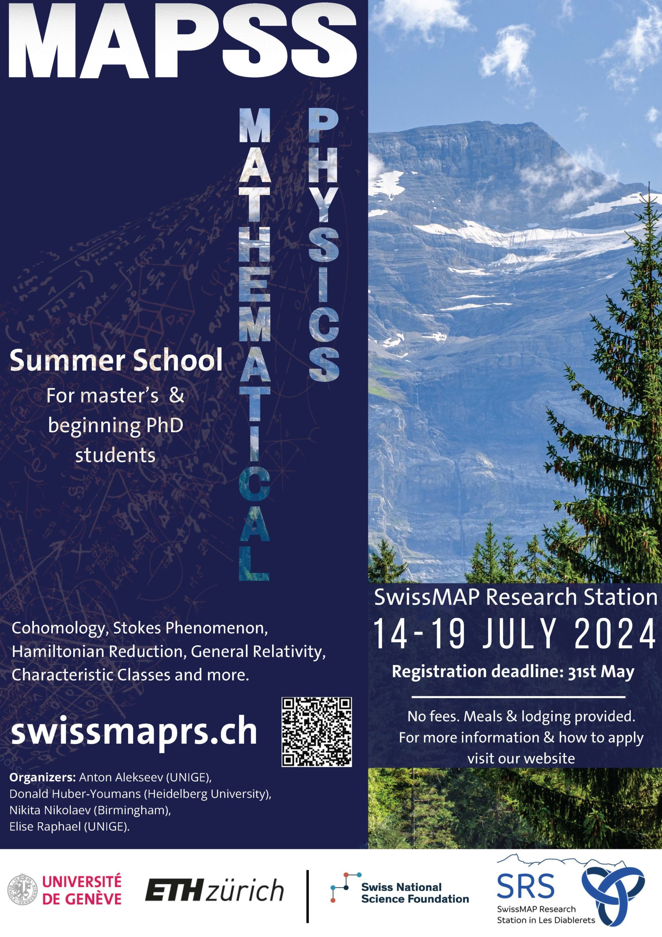- Compact style
- Indico style
- Indico style - inline minutes
- Indico style - numbered
- Indico style - numbered + minutes
- Indico Weeks View
MAPSS
→
Europe/Zurich
Hotel Les Sources
Hotel Les Sources
Chem. du Vernex 9,
1865 Ormont-Dessus
Les Diablerets
Switzerland
, ,
Description
All materials (lecture notes and exercises) can be found at the bottom of this page.
The Mathematical Physics Summer School for masters students and beginning PhD students is organized by SwissMAP and offers introductory lectures to different aspects of mathematical physics.
Registrations are now closed.
Confirmed speakers:
- Donald Huber-Youmans (University of Heidelberg)
- Nikita Nikolaev (University of Birmingham)
- Chiara Saffirio (University of Basel)
- Alexander Thomas (University of Heidelberg)
- Fridrich Valach (University of Hertfordshire)
- Olga Chekeres (Institute for Theoretical and Mathematical Physics, Lomonosov Moscow State University)
Program
This summer school will contain 8 mini-courses on the following topics:
- Symplectic geometry
- Symplectic reduction (and its applications in physics)
- Differential geometry
- General relativity
- Algebraic topology
- Supergeometry (and its applications in physics)
- Singular ODEs
- Superconductivity
Abstracts are visible directly on the schedule.

Participants
Aleksandr Trufanov
Alexander Gonsales
Arianna Viganò
Danilo Lucic
Dominic Diem
Eric Goldhahn
Guifré Sánchez Serra
Irina Rusetski
Iuliia Popova
Jacopo Peroni
Kimia Mirbaghestan
Matan Tom Kaufman
Mathieu Benninghoff
Milad Trishak Singh Kalra
Noah Messerli
Ophélie Rivière
Pedro Alexandre Torres Giesteira
Philippe Knecht
Prathmesh Patil
Rasolofo Yano
Timon Leupp
Vadym Koval
- +19
Contact